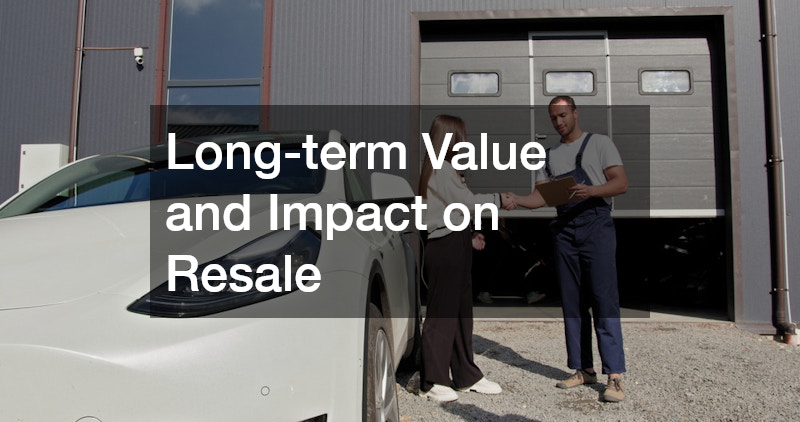Understanding when to seek professional auto damage repair can save you time, money, and the integrity of your vehicle. This article will guide you through the indicators that suggest professional intervention is necessary, how to assess damage, and common repair scenarios. Being aware of the damage level can prevent future complications, reduce safety risks, and maintain your car’s resale value.
Is the Damage Deep or Cosmetic?
Assessing Surface Scratches vs. Deep Dents
Superficial scratches typically affect only the outermost layer of your vehicle, leaving the deeper structural elements unharmed. In contrast, deep dents can signify underlying issues that compromise the vehicle’s structural integrity, which may affect safety during operation. Identifying the difference between these two helps in deciding the level of urgency in seeking professional auto body repair.
Surface scratches often result from minor incidents but can sometimes be polished out or minimized with DIY solutions. Deep dents, especially in critical areas like door frames or hoods, might require specialized tools and expertise to ensure the car’s body is restored correctly. Neglecting these deeper damages might lead to potential issues with rust and performance, necessitating costly interventions later.
Analyzing the location and nature of any damage is crucial. Dents on the panels can sometimes mask deeper chassis issues, particularly after a significant collision. Professional evaluation is prudent to ensure there is no hidden damage that might threaten vehicle safety.
Understanding Paint Damage
Paint damage goes beyond aesthetics; it can be a protective layer that shields the metal body from environmental factors. When the paint is chipped or scraped down to the bare metal, rust can form, further compromising the integrity of your vehicle. If left untreated, this rust can extend and cause structural damage that could significantly escalate repair costs.
Minor paint scuffs may be resurfaced with touch-up kits available for small DIY projects. However, extensive damage, particularly that which reveals metal, should prompt consideration of professional repainting. For instance, if the paint is damaged in multiple layers, seeking expert assessment ensures that the underlying issues are identified and addressed.
Rust prevention is essential in maintaining the durability of your car, especially in areas with high moisture content or salt exposure, such as coastal regions. Professional intervention can include comprehensive techniques like sanding, priming, and clear-coating, ensuring a long-lasting repair job that isn’t just skin-deep. Such detailed care extends the lifespan of your car and retains its aesthetic value over time.
Handling Basic Repairs Yourself
DIY Repairs: Tools and Knowledge Required
Basic auto repairs might seem straightforward, but they require specific tools and a certain level of mechanical acumen to perform effectively. Simple tasks like changing brake pads or replacing a battery may not necessitate extensive experience, but still require attention to detail to ensure safety. For novices or those lacking the correct equipment, some tasks could inadvertently lead to complications.
Specialty tools like torque wrenches, automotive jacks, and diagnostic devices become necessary for more in-depth repairs. Lack of proper equipment or technical know-how often results in improper repairs, increasing the likelihood of accidents or vehicle damage. Recognizing personal limitations and the need for trained professionals can save time and prevent costly mistakes.
Risks of Improper Repairs
Improper auto repair can expose drivers to significant risks, affecting both vehicle performance and safety. Inadequate repairs might lead to components malfunctioning under stress, particularly at high speeds or severe road conditions. This not only endangers occupants but also increases liability in the event of accidents caused by such faults.
Unintended consequences of poor repairs can accelerate wear-and-tear on vehicle elements, undermining their longevity and leading to frequent breakdowns. The additional stress on interconnected systems may escalate repair costs due to secondary damage. Timely professional intervention ensures fixes are performed correctly, safeguarding both the car and its occupants.
The Costs and Benefits of Professional Repair
Understanding Repair Estimates
Repair estimates can be daunting, especially to someone unfamiliar with typical automotive servicing costs. It’s vital to seek multiple quotes and compare them to understand market rates and determine fair pricing. Professionals usually include detailed information for inspection, parts, labor, and provide a breakdown, allowing customers to make informed decisions.
Interpreting these quotes involves examining each line item to identify necessary repairs versus optional services that might enhance performance or aesthetics. Understanding what’s essential and what can be postponed is crucial in managing repair expenses. Trusted mechanics will gladly explain estimates and recommend the best courses of action to match budget constraints.
Long-term Value and Impact on Resale
Professional repairs can significantly affect a vehicle’s resale value, making up for the expenses over time. Buyers often seek vehicles with consistent maintenance records, indicating reliable performance and reduced risk of future problems. Properly documented professional work provides assurance and boosts confidence among potential buyers.
On the contrary, vehicles with visible flaws or evidence of inferior repairs might depreciate faster, diminishing resale opportunities. A car perceived as well-maintained often has better market leverage, offering negotiation advantages for the seller. Cognizance of how appearance and condition directly impact these outcomes underscores the value of professional intervention before attempting a sale.
Making an informed decision about auto damage repair involves understanding the nature and implications of the damage, weighing the costs and benefits, and knowing when professional help is the best option to maintain your vehicle’s performance and value. While minor repairs may be manageable with adequate skills and tools, deeper and more complex issues often necessitate professional evaluation. By considering these factors, you can ensure your vehicle remains in top condition, providing safety, longevity, and improved resale potential.



